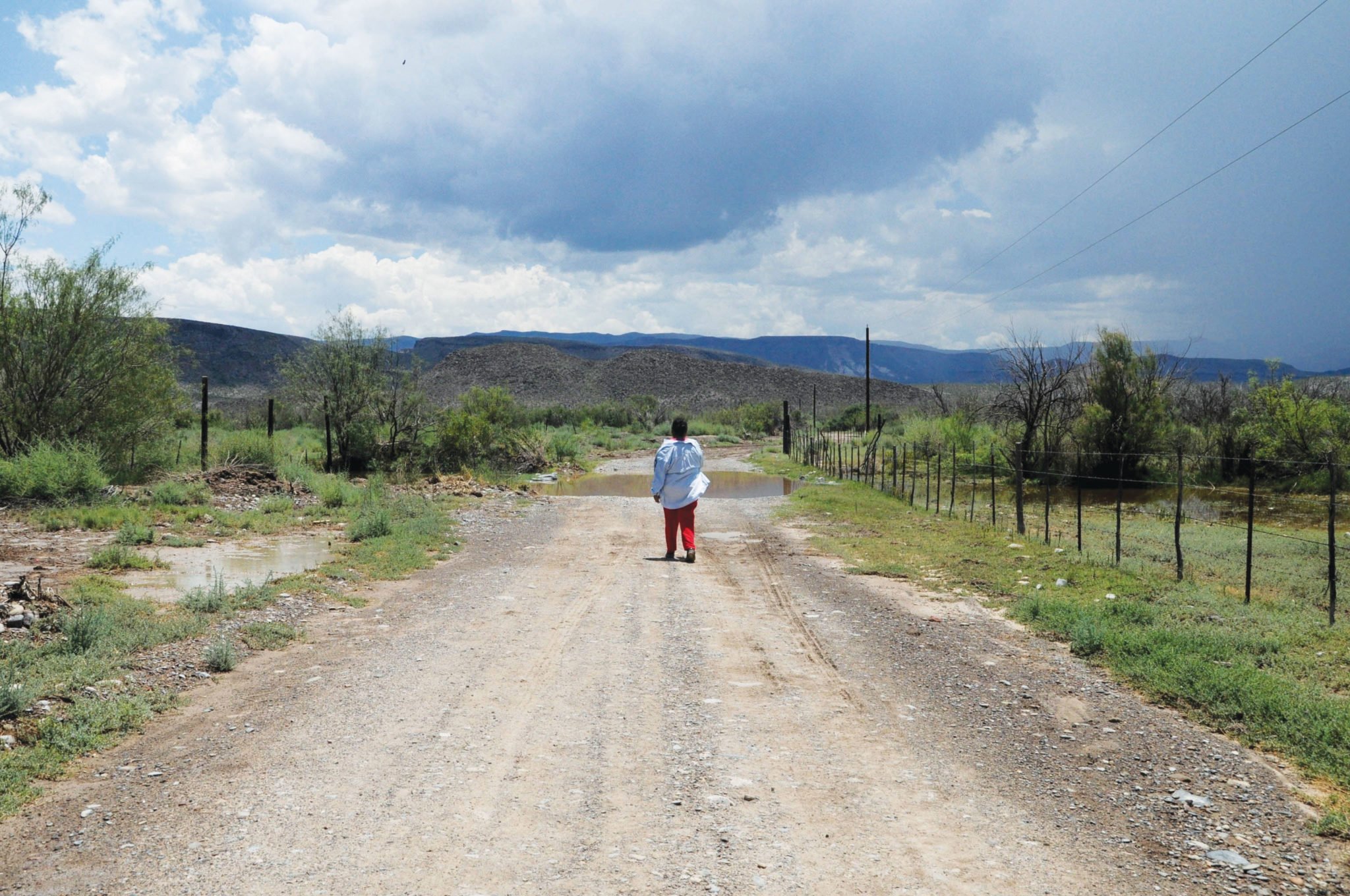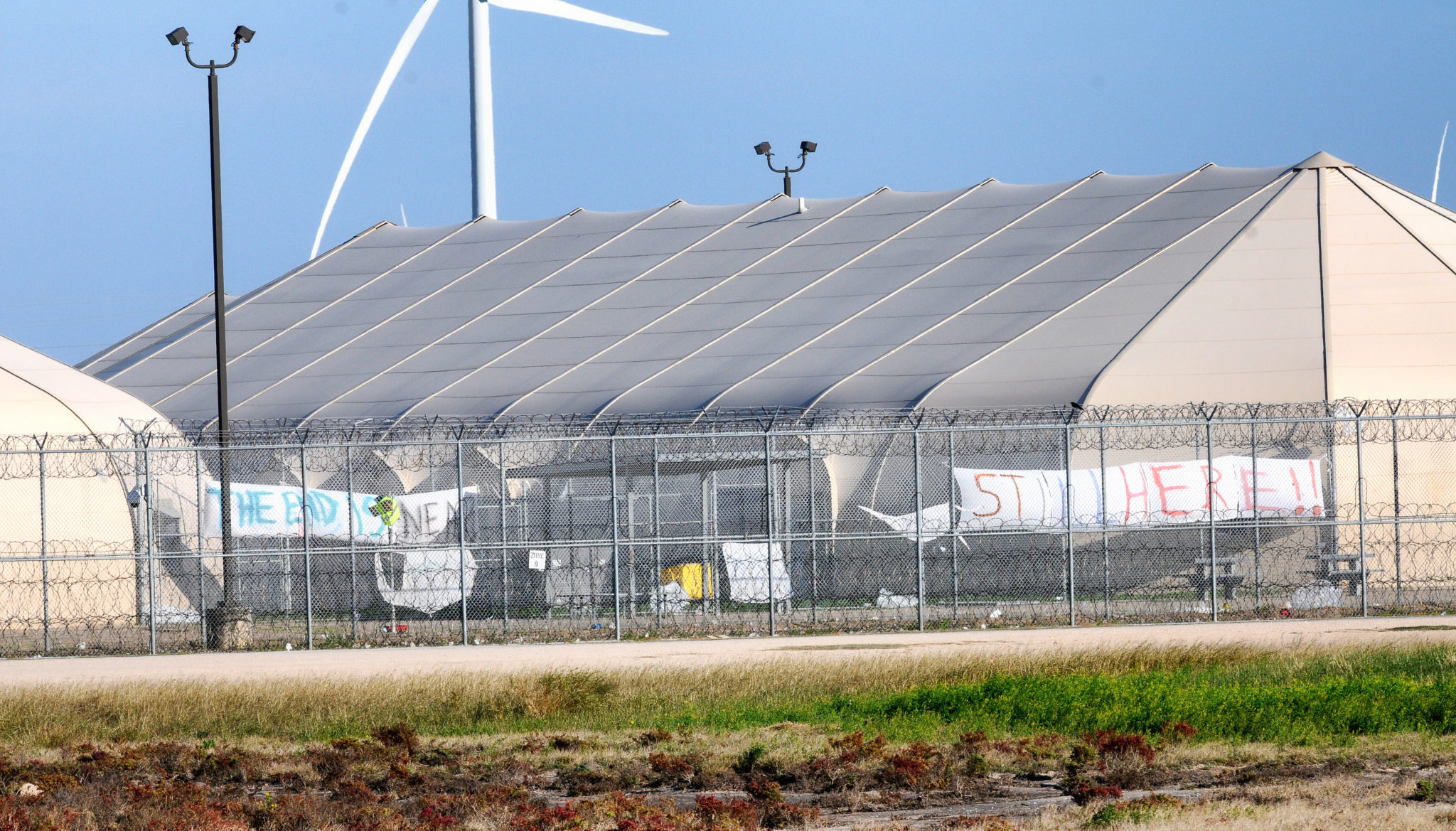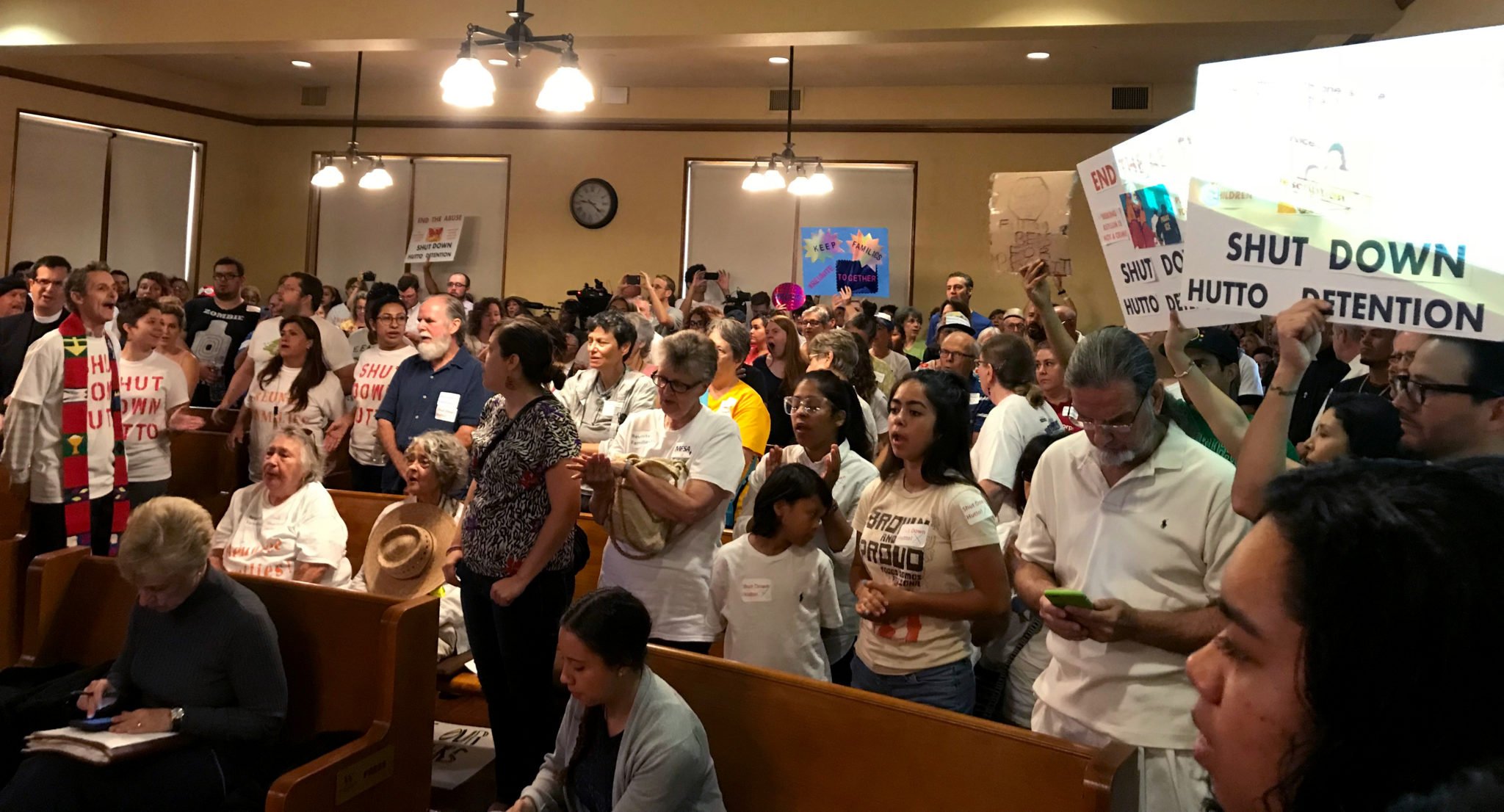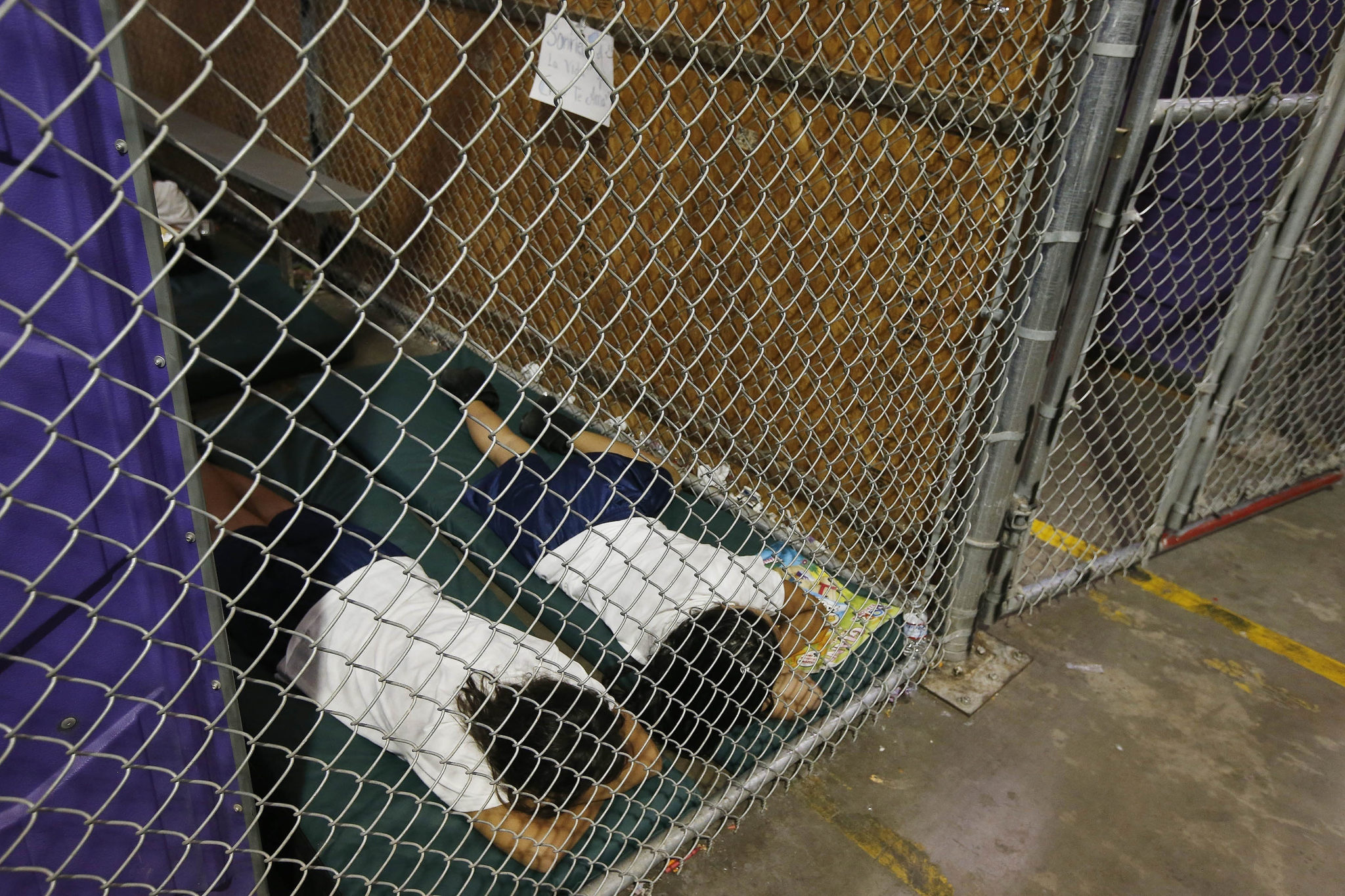
‘Treated Worse than Dogs’: Immigrant Kids in Detention Give Firsthand Accounts of Squalid Conditions
Hundreds of immigrant children and parents in federal detention facilities say they’ve endured inedible food, verbal and physical abuse and a lack of medical treatment.

The Trump administration is unlawfully mistreating immigrant kids at every stage of its detention system, according to new court filings that include firsthand accounts written by hundreds of children and parents. The allegations, filed this week as part of an ongoing lawsuit over the U.S. government’s treatment of immigrant children, range from inedible food and undrinkable water to verbal and physical abuse.
Dixiana, a 10-year-old Honduran, writes through a translator that she and her mother were arrested by Border Patrol agents after crossing near McAllen in late May. Dixiana says she was then separated from her mom and herded into a crowded cell. “There were large numbers of girls, some of whom had to sleep on concrete and sitting up. … They gave me a frozen ham sandwich. The ham was black. I took one bite, but did not eat the rest.”
Migrants typically spend several days in such facilities, which Spanish-speakers call hieleras, ice boxes, or perreras, kennels. In the documents, kids and parents, many seeking asylum, allege harrowing conditions at Border Patrol facilities. They describe overflowing toilets, chronic sleep deprivation, lack of basic hygiene products, and air conditioning cranked so high that children shiver constantly, their clothes sometimes still wet from crossing the Rio Grande.
Delmis, a Honduran mother of two, described the water at the Border Patrol facilities. “I had to plug my nose to be able to drink it,” she wrote. One 17-year-old Honduran boy said officers treated teenage migrants “worse than dogs.”
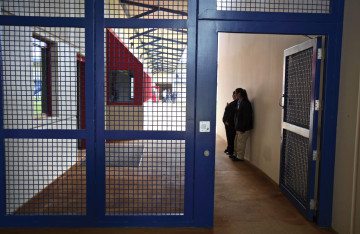
The accounts, 225 in total, were submitted this week as the latest salvo in a 33-year court battle over the treatment of migrant kids in federal custody. The lawsuit was settled in 1997, spawning a set of protections for migrant minors known as the Flores agreement. Since then, the two sides have regularly sparred over the deal, and advocates now say Trump’s detention system is rife with violations.
“President Trump has spoken loud and clear, and now it’s the children’s time to speak out,” said Peter Schey, director of the Center for Human Rights and Constitutional Law, who submitted the documents in a Los Angeles federal court.
“It’s a picture of enforced hunger, enforced dehydration, enforced sleeplessness, coupled with insults and fairly routine physical assaults,” said Schey. “It all amounts to treatment that’s probably in violation of domestic and international law.”
When asked to respond, a Department of Justice spokesperson directed the Observer to an earlier internal assessment by Customs and Border Protection Juvenile Coordinator Henry Moak Jr. “Based on my personal observations … on-site interviews of minors and/or their parents, and subsequent review of minors’ custodial records, I conclude CBP continues to comply with the [Flores] Agreement,” Moak wrote in June.
“I cannot act like a kid like I used to.”
After up to a week in Border Patrol holding facilities, unaccompanied minors as well as children separated from their parents are moved to so-called shelters, operated by nonprofits under contract with the federal health department. The Flores agreement generally forbids the government from holding children in “secure,” jail-like facilities. Schey alleges that the largest youth detention center in the country, Casa Padre in Brownsville, is in violation of the agreement, and kids confirm a feeling of incarceration.
Elmer, a 15-year-old Guatemalan who arrived alone at the Texas border in January, has been held for six months at Casa Padre, which is operated by the nonprofit Southwest Key. “I do not know how long I will be kept here and when I will be able to leave,” he wrote. “They write reports on children acting up and breaking rules. I am afraid that if I get any report on me, I will not be released. … I cannot act like a kid like I used to.”
Kevin, a 17-year-old Honduran who arrived at Casa Padre in late June, said he’s had no chance to speak with a lawyer and that staff threaten kids with deportation. “If a child does manage to escape Casa Padre, immigration will be called, and the child will be put in prison and deported. The staff and misters and misses tell us this every few days,” he wrote.
The U.S. Department of Health and Human Services did not respond to a request for comment, and a Southwest Key spokesperson deferred to the feds.
The other piece of the migrant minor detention system is the three family detention centers, run by Immigration and Customs Enforcement, where the feds hold parents together with children. Since 2015, the government has generally released families from these centers within 20 days, ever since the judge in the Flores case ordered that kids couldn’t be held in unlicensed prison-like centers longer than that.
But the Trump administration has decided to play hardball, and pledged last week it will now offer parents a choice: Waive your child’s Flores rights and be detained indefinitely together, or be separated. In his filing, Schey calls for ICE to stop holding kids in the unlicensed family detention centers altogether. In written statements, parents describe lengthy stays and deficient medical care at the two biggest family detention centers, both of which operate in remote South Texas towns.
“You see a lot of sick kids here at [the South Texas Family Residential Center]. You see kids with chicken pox and also some throwing up in the cafeteria,” wrote Blanca, a Guatemalan woman who’d been detained with her 4-year-old for 30 days as of late June. “The conditions here are better than the perrera or hielera; however, it’s hard to get medication.” Other mothers wrote that they’d been locked up for 50 days, and they described medical personnel refusing them treatment. An ICE spokesperson did not respond to a request for comment.
In light of the squalid conditions, Schey argues that the whole system is in need of new management: He’s calling for a “special monitor” who will review the system for violations and recommend changes to the judge.
“Every step of the way, there are rights these kids have that are not being enforced,” said Andrew Cain, a Law Foundation of Silicon Valley attorney who’s also on the Flores case. “To have a truly independent assessment, it’s got to be done by someone who doesn’t have a direct stake in the outcome.” The next hearing in the case is set for July 27.
